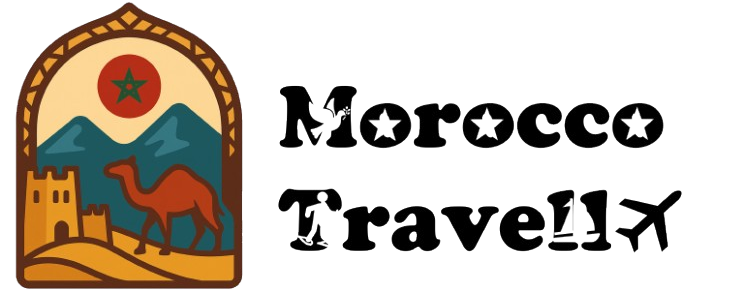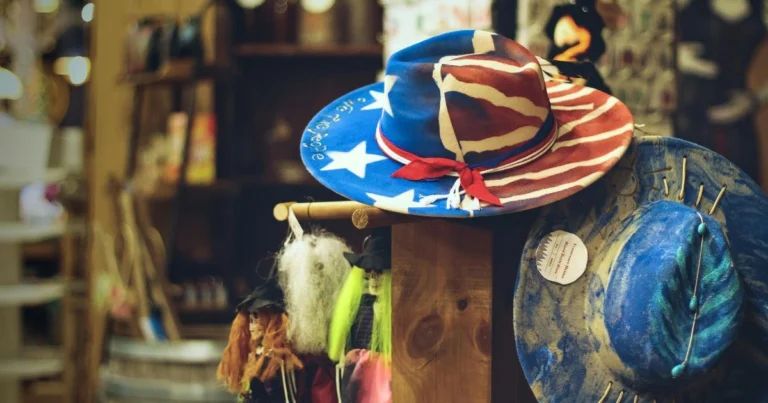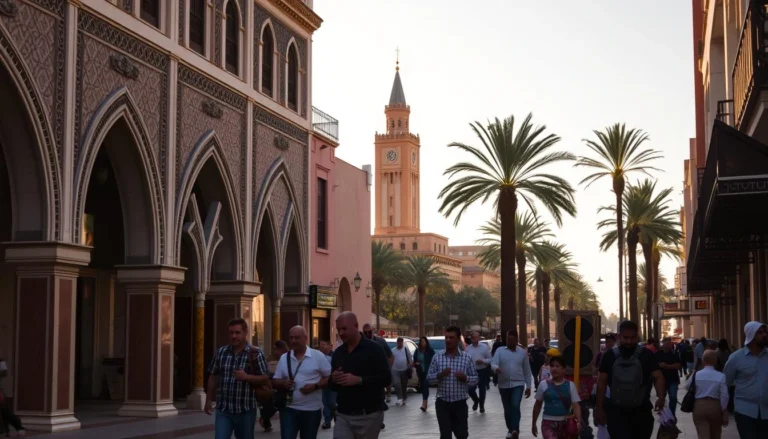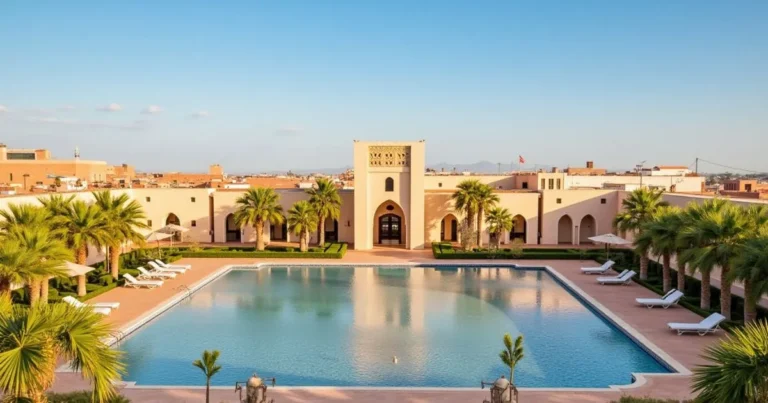Is It Safe to Travel to Morocco? Here’s the Truth
Is It Safe to Travel to Morocco?
As you plan your next trip, you might be wondering about the safety of traveling to Morocco. With its rich cultural heritage and stunning landscapes, Morocco is a destination that has captured the hearts of many travelers. However, safety concerns can be a major deterrent. You’re not alone in questioning Morocco’s safety; many potential travelers share your concerns.
Morocco is generally considered a safe and welcoming country, with low crime rates compared to other popular tourist destinations. By being aware of your surroundings and taking a few simple precautions, you can have a safe and enjoyable trip. In this article, we’ll explore the safety aspects of traveling to Morocco, providing you with valuable insights to help you make informed decisions.
Table of Contents
The Current Safety Situation in Morocco
As you plan your trip to Morocco, understanding the current safety situation is crucial for a worry-free journey. Morocco has been taking significant steps to enhance tourist safety, but as with any travel destination, it’s essential to be informed.
Recent Safety Statistics
Morocco has seen a decline in crime rates over the past few years, with a notable decrease in violent crimes. According to recent statistics, the overall crime rate has dropped by 10% compared to the previous year. This improvement is partly due to the increased security measures implemented by the Moroccan authorities, especially in tourist areas.
UK Government Travel Advisories
The UK Government issues regular travel advisories for Morocco, providing guidance on safety and security. As of the latest update, the advisory cautions against petty crime and advises travelers to be vigilant, especially in crowded areas and tourist hotspots. It’s recommended to check the official government website for the most current information before your trip.
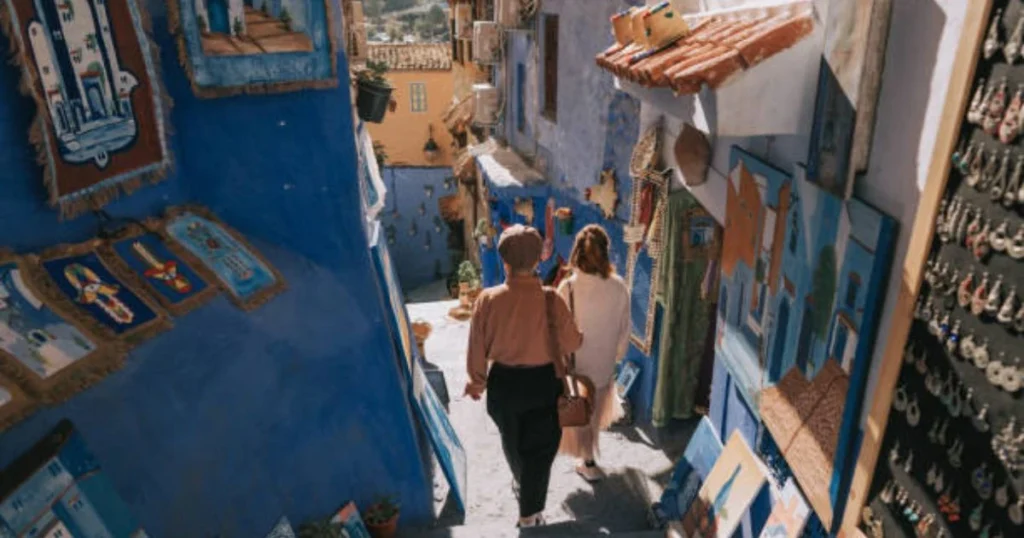
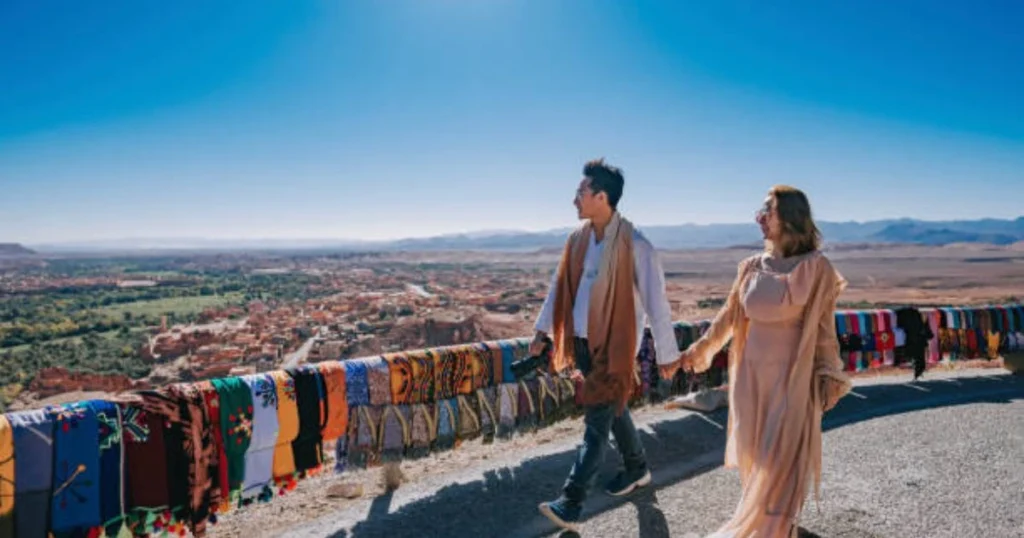
Political Stability Overview
Morocco is considered a politically stable country, with a robust framework for governance. The government has been proactive in addressing potential security threats, contributing to a stable environment for tourists. While demonstrations can occur, they are generally peaceful and rarely affect tourist areas.
Overall, Morocco’s safety situation is characterized by a low risk of major incidents, making it an attractive destination for travelers. By staying informed and taking normal precautions, you can have a safe and enjoyable trip.
Is It Safe to Travel to Morocco? The Overall Picture
If you’re planning a trip to Morocco, understanding the safety situation is crucial. Morocco is a country with a rich cultural heritage and diverse landscapes, attracting millions of tourists each year.
To give you a well-rounded understanding, we’ll examine crime rates compared to other tourist destinations, address common misconceptions about Moroccan safety, and share experiences of British travelers who have visited Morocco.
Crime Rates Compared to Other Tourist Destinations
Morocco is generally considered a safe country for tourists. According to crime statistics, Morocco has a lower crime rate compared to many other popular tourist destinations.
| Destination | Crime Rate per 1,000 Tourists |
|---|---|
| Morocco | 1.2 |
| Spain | 2.5 |
| France | 3.1 |
| Italy | 2.8 |
As shown in the table, Morocco has a lower crime rate per 1,000 tourists compared to several European countries popular with travelers.
Common Misconceptions About Moroccan Safety
Despite its safety record, there are several misconceptions about traveling in Morocco. One common myth is that Morocco is unsafe due to its proximity to certain conflict zones.
Another misconception is that petty crime is rampant. While it’s true that, like many tourist destinations, Morocco experiences some petty theft and scams, taking normal precautions can significantly reduce your risk.
British Traveler Experiences
Many British travelers have visited Morocco without incident. In fact, a survey of British tourists revealed that the vast majority felt safe during their visit.
- 85% of respondents reported feeling safe or very safe.
- 90% said they would recommend Morocco as a travel destination.
- 95% felt that their cultural experiences were positive and enriching.
These statistics and testimonials from British travelers help paint a picture of Morocco as a welcoming and safe destination for tourists.
Safety in Major Moroccan Cities
As you plan your trip to Morocco, understanding the safety landscape in its major cities is crucial. Morocco is known for its vibrant urban centers, each offering a unique cultural experience. Here’s a breakdown of what you can expect in terms of safety in some of the country’s major cities.
Marrakech
Marrakech is a bustling tourist hub known for its vibrant souks and rich history. While generally safe, be mindful of pickpocketing in crowded areas and be cautious of overly friendly strangers who might be scam artists.
Casablanca
Casablanca, Morocco’s largest city, is relatively safe, with low crime rates compared to other major cities worldwide. However, as with any large city, remain vigilant, especially at night.
Fez
Fez, with its ancient medina, is a UNESCO World Heritage site. The city is generally safe, but narrow streets can be confusing, and there’s a risk of getting lost. Staying oriented and keeping valuables secure is advisable.
Tangier
Tangier has a rich cultural heritage and is generally considered safe for tourists. Be aware of your surroundings, especially in crowded areas, and keep an eye on your belongings.
Chefchaouen
Chefchaouen, known for its blue-painted buildings, is a laid-back town in the Rif Mountains. It’s considered very safe, with low crime rates, making it an ideal destination for those seeking a relaxed atmosphere.
| City | Safety Rating | Common Safety Concerns |
|---|---|---|
| Marrakech | 8/10 | Pickpocketing, scams |
| Casablanca | 8.5/10 | Petty theft, night safety |
| Fez | 8/10 | Getting lost, petty theft |
| Tangier | 8/10 | Crowd safety, pickpocketing |
| Chefchaouen | 9/10 | Minimal concerns, very safe |
Overall, Morocco’s major cities are relatively safe for tourists, with some basic precautions recommended to ensure a smooth and enjoyable trip.
Rural Areas and Desert Excursions: Safety Considerations
Morocco’s diverse geography, from the Atlas Mountains to the Sahara Desert, offers many exciting experiences, but safety should always be your guide. As you venture into these areas, understanding the local conditions and taking necessary precautions can significantly enhance your travel experience.
Atlas Mountains
The Atlas Mountains are a popular destination for hikers and adventure seekers. While the region is generally safe, it’s crucial to be prepared for variable weather conditions and challenging terrain. Ensure you have appropriate gear, including sturdy footwear and layers for changing weather.
Consider hiring a local guide who is familiar with the trails and can provide valuable insights into the region’s culture and geography. Guides can also help you navigate the terrain safely and respectfully interact with local communities.
Sahara Desert Tours
Sahara Desert tours can be an exhilarating experience, but they require careful planning. Opt for reputable tour operators who have a strong safety record and provide necessary equipment and guides.
Be prepared for extreme temperatures by bringing appropriate clothing, sun protection, and staying hydrated. It’s also wise to have a basic first-aid kit on hand.
Coastal Towns
Morocco’s coastal towns, such as Essaouira, offer a relaxing atmosphere and scenic beauty. While generally safe, petty crime can be a concern in tourist areas. Keep valuables secure and be mindful of your surroundings, especially in crowded markets.
Border Regions
Some border regions in Morocco can be sensitive due to security concerns. It’s advisable to check the latest travel advisories from your government before heading to these areas. Avoid traveling to areas near the Western Sahara border without a reputable guide or tour.
| Region | Safety Considerations | Precautions |
|---|---|---|
| Atlas Mountains | Variable weather, challenging terrain | Appropriate gear, local guide |
| Sahara Desert | Extreme temperatures, dehydration | Sun protection, hydration, reputable tour operator |
| Coastal Towns | Petty crime | Secure valuables, aware of surroundings |
| Border Regions | Security concerns | Check travel advisories, avoid sensitive areas |
By being informed and prepared, you can enjoy Morocco’s rural areas and desert excursions while maintaining your safety. Always research your destinations, stay aware of local conditions, and take necessary precautions.
Transportation Safety in Morocco
When traveling to Morocco, understanding the safety aspects of transportation is crucial for a smooth and enjoyable trip. Morocco offers a variety of transportation options, each with its own safety considerations.
Taxis and Ride Services
Taxis are a popular mode of transport in Morocco’s cities. To stay safe, use licensed taxis or reputable ride services like Uber or Careem, which are available in major cities. Always agree on the fare before you start your journey.
Public Transportation
Public transportation, including buses and trains, is generally safe but can be crowded. Be mindful of your belongings, especially in busy stations and during peak travel times.
Driving in Morocco
If you plan to drive, be aware that road conditions can vary significantly. Defensive driving is key, and it’s recommended to rent a car from a reputable company. Always wear a seatbelt and avoid driving at night.
Intercity Travel Options
For intercity travel, consider using Supratours or ONCF trains, which are reliable and relatively safe. Booking in advance is advisable, especially during peak travel seasons.
By being informed and taking necessary precautions, you can navigate Morocco’s transportation network safely and enjoy your travels.
Common Scams and How to Avoid Them
Being informed about the common scams in Morocco can help you avoid potential pitfalls and enjoy your trip to the fullest. While Morocco is generally considered safe for tourists, being aware of potential scams can save you from financial loss and unnecessary stress.
Marketplace Scams
One of the most common scams in Morocco occurs in marketplaces, where vendors might overcharge tourists or provide low-quality goods. To avoid this, research the market value of items you’re interested in beforehand, and don’t be afraid to haggle.
Fake Guides
Fake guides are another issue tourists might face. To avoid falling prey to unauthorized guides, ensure you hire guides through reputable sources or recommendations from your hotel or tour operators.
Transportation Scams
Transportation scams, such as overcharging for taxi rides, can be avoided by using reputable taxi services or ride-sharing apps, and always agreeing on the fare before you start your journey.
Tourist-Targeted Schemes
Be cautious of overly friendly locals who might approach you with “deals” that seem too good to be true. These could be scams designed to part you from your money. Always verify the authenticity of such offers through local authorities or your tour guide.
By being aware of these common scams and taking simple precautions, you can significantly enhance your safety and enjoyment while traveling in Morocco.
Cultural Etiquette for Safe Travel
To ensure a smooth and respectful journey in Morocco, familiarizing yourself with cultural etiquette is essential. Morocco is a country rich in traditions and customs, and being mindful of these can significantly enhance your travel experience and contribute to your safety.
Dress Code Recommendations
Morocco is a conservative country, and dressing modestly is advised, especially when visiting mosques or rural areas. Covering your shoulders and knees is a sign of respect, and you’ll find that many locals appreciate your consideration. For women, a scarf can be a useful accessory to cover your head when entering mosques or other religious sites.
Religious Considerations During Ramadan
During Ramadan, the Islamic month of fasting, it’s essential to be respectful of those fasting. Avoid eating, drinking, or smoking in public during daylight hours. This not only shows respect for the local culture but also helps you blend in and avoid drawing unnecessary attention to yourself.
Photography Etiquette
When taking photos, be mindful of your surroundings and the people in them. Asking permission before photographing locals is a sign of respect, especially in rural areas or when capturing images of people in traditional clothing.
Interacting with Locals
Moroccans are known for their hospitality, and interacting with locals can be a rewarding experience. Learning a few basic Arabic phrases, such as “hello” (Marhaba) and “thank you” (Shukran), can go a long way in showing respect and appreciation for the culture.
Solo Travel Safety Tips for Morocco
As a solo traveler in Morocco, you’ll want to take certain safety measures to ensure your trip is both memorable and stress-free. Morocco is generally considered safe for solo travelers, but being aware of your surroundings and local customs can make a significant difference.
Tips for Women Traveling Alone
For women traveling alone in Morocco, dressing modestly is key to avoiding unwanted attention. Covering your shoulders and knees can help you blend in and show respect for the local culture. Additionally, being mindful of your surroundings, especially in crowded areas, is crucial.
It’s also a good idea to research and stay in women-friendly accommodations, where you can feel safe and comfortable. Joining group tours or connecting with other female travelers can provide an added layer of security and camaraderie.
Tips for Men Traveling Alone
Men traveling alone in Morocco should be aware of their surroundings, particularly at night. Sticking to well-lit and populated areas can help minimize risks. Being cautious of overly friendly locals who might have ulterior motives is also advisable.
Understanding local customs and laws can help you avoid any unintentional offenses or misunderstandings. For instance, taking photos of certain government or military buildings is strictly prohibited.
Best Practices for Solo Travelers
Regardless of your gender, there are several best practices to keep in mind when traveling solo in Morocco. Keeping your valuables secure and being mindful of your belongings, especially in crowded markets or tourist areas, is essential.
- Stay informed about local conditions and demonstrations.
- Respect local customs and dress codes.
- Stay in touch with family and friends back home.
Recommended Group Tours for Solo Travelers
Joining a group tour can be an excellent way to experience Morocco safely. Many tour operators offer group tours specifically designed for solo travelers, providing a great opportunity to meet new people while exploring the country.
Some popular options include cultural tours that delve into Morocco’s rich history, adventure tours that take you into the Atlas Mountains, and desert tours that offer a chance to experience the Sahara’s breathtaking landscapes.
Family and Group Travel Safety
Traveling to Morocco with family or in a group can be a wonderful experience, but it requires some special considerations to ensure everyone’s safety. When planning your trip, it’s essential to think about the unique needs of your group.
Traveling with Children
Morocco can be a great destination for families, with many child-friendly activities and attractions. However, it’s crucial to keep a close eye on your children, especially in crowded areas like markets and tourist sites. Consider packing a small day bag with essentials like water, snacks, and sun protection to keep your little ones comfortable.
Group Dynamics and Safety
When traveling in a group, establishing a meeting point in case someone gets lost is a good idea. It’s also helpful to designate a leader to make decisions and ensure everyone stays together. Being in a group can enhance your safety, as there’s strength in numbers.
Family-Friendly Accommodations
Choosing the right accommodation can significantly impact your family’s or group’s experience. Look for hotels or riads that cater to families, offering amenities like separate bedrooms or kid-friendly facilities. Booking a place with a good reputation and positive reviews can also enhance your safety and comfort.
Health and Medical Safety
As you plan your trip to Morocco, understanding the health and medical safety landscape is crucial. Morocco is generally considered safe for tourists, but like any travel destination, it’s essential to be aware of certain health considerations to ensure a smooth and enjoyable journey.
Recommended Vaccinations
Before traveling to Morocco, consult your doctor or a travel clinic about recommended vaccinations. Typically, vaccinations for hepatitis A, hepatitis B, and typhoid are advised. Ensure your routine vaccinations are up-to-date.
Food and Water Safety
To avoid gastrointestinal issues, drink bottled or filtered water and avoid consuming undercooked meat or raw vegetables. Eating at reputable restaurants and street food stalls that are busy (indicating a high turnover of food) can minimize risks.
Medical Facilities in Morocco
Major cities like Marrakech and Casablanca have good medical facilities, with some private hospitals meeting international standards. However, medical care in rural areas may be limited.
Travel Insurance Requirements for UK Citizens
UK citizens should secure travel insurance that covers medical expenses abroad. Ensure your policy includes emergency evacuations, as this can be a critical component of medical care in severe cases.
Emergency Situations and Resources
While Morocco is generally a safe destination, it’s crucial to be prepared for any emergency situations that may arise during your trip. Knowing the resources available can make a significant difference.
UK Embassy and Consular Services
The UK Embassy in Rabat and the Consulate General in Casablanca are there to assist British nationals in emergencies. They can provide help with lost or stolen passports, and offer guidance on local laws and customs.
Local Emergency Numbers
In case of an emergency, you can dial the following numbers:
- Police: 19
- Fire Brigade: 15
- Ambulance: 15
It’s a good idea to save these numbers in your phone for quick access.
Natural Disaster Preparedness
Morocco can experience natural disasters like earthquakes. Familiarize yourself with evacuation procedures and follow local news and instructions from local authorities.
Lost Passport Procedures
If your passport is lost or stolen, report it to the local police and obtain a police report. Then, contact the UK Embassy or Consulate for assistance with obtaining a replacement or emergency travel documents.
Conclusion: Enjoying Morocco Safely
As you’ve explored the various aspects of traveling to Morocco, it’s clear that with proper preparation, you can have a safe and enjoyable experience. Morocco is a country rich in culture, history, and natural beauty, making it an attractive destination for travelers from the United Kingdom.
By understanding the current safety situation, being aware of your surroundings, and respecting local customs, you can minimize risks and maximize your enjoyment. Whether you’re exploring the vibrant cities, trekking through the Atlas Mountains, or relaxing on the coastal beaches, Morocco has much to offer.
So, is Morocco safe to visit? The answer is yes, as long as you’re well-prepared and informed. With its warm hospitality, stunning landscapes, and rich cultural heritage, Morocco is a destination that promises an unforgettable experience. As you plan your trip, remember to stay informed, be mindful of your surroundings, and embrace the unique experiences that Morocco has to offer.
